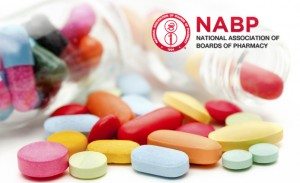 The National Association of Boards of Pharmacy (NABP) recently issued the Internet Drug Outlet Identification Program Progress Report for State and Federal Regulators: April 2014. The report focuses on two important themes, including the launch of the .PHARMACY generic Top-Level Domain (gTLD) and the need to further educate the public about the dangers of unapproved drugs and other risks of buying medications online.
The National Association of Boards of Pharmacy (NABP) recently issued the Internet Drug Outlet Identification Program Progress Report for State and Federal Regulators: April 2014. The report focuses on two important themes, including the launch of the .PHARMACY generic Top-Level Domain (gTLD) and the need to further educate the public about the dangers of unapproved drugs and other risks of buying medications online.
By way of background, a generic top-level domain (gTLD) is one of the categories of top-level domains for use in the Domain Name System of the Internet. It is visible to Internet users as the suffix at the end of a domain name. The NABP report describes how the .PHARMACY gTLD is still in the development and testing phases. Next steps in the process include testing the gTLD to ensure it works as intended, in a stable and secure way. Once operational, NABP will work to ensure that any online pharmacy that purchases the gTLD is in compliance with the established .PHARMACY standards.
In addition, the report suggests the need for enhanced consumer awareness about substandard or counterfeit drugs and the dangers posed by websites that illegally sell them. This is especially important because, as in past reports, of the 10,750 Internet drug outlets reviewed by NABP, 10,392 (or 75%) of them are still not recommended.
NABP recommends that in order to find the safest sources for purchasing medicine online, consumers should look for the VIPPS seal on an accredited site. At CSIP, we recommend that consumers check all online pharmacy sites before they buy using our LegitScript Pharmacy Verification Tool, and educate themselves about the dangers of illegitimate online pharmaceuticals and pharmacies.
#####
The Center for Safe Internet Pharmacies (CSIP) and our 13 member companies have the shared goal of helping address the growing problem of consumer access to illegitimate pharmaceutical products on the Internet. Continue to read this blog for updates on CSIP’s education, enforcement and information-sharing efforts.

